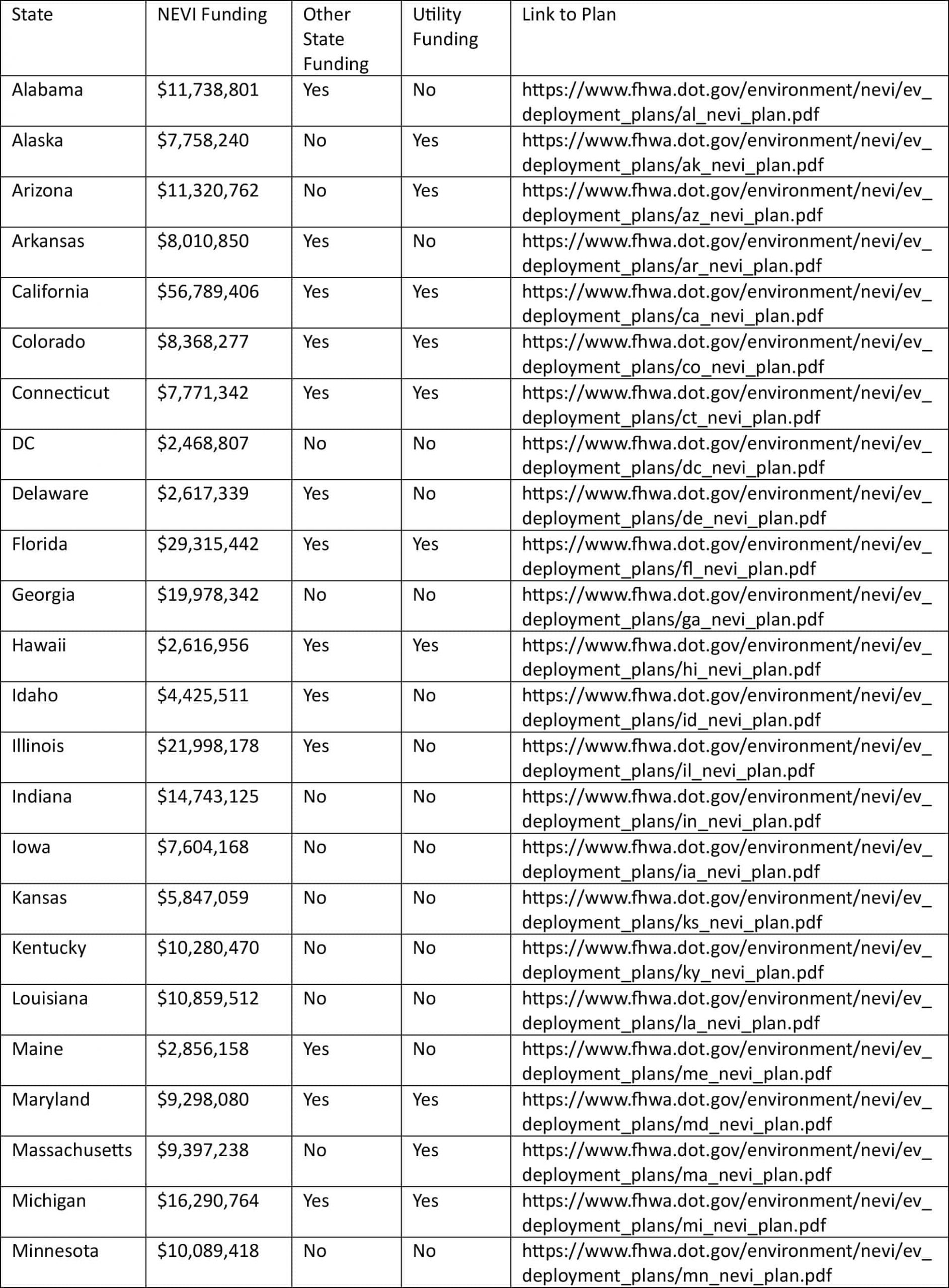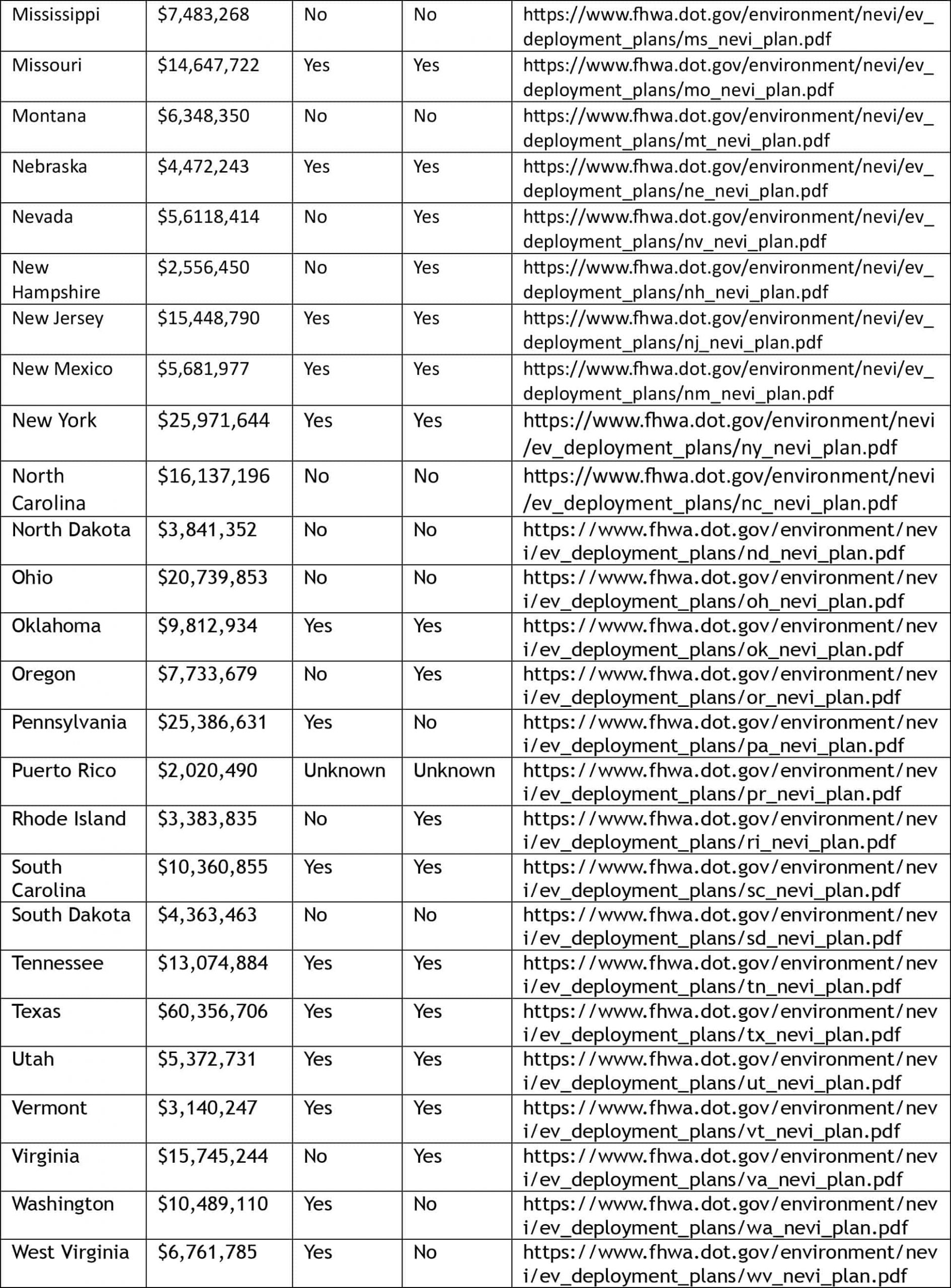The Bipartisan Infrastructure LAW (BIL) supports two programs for building out a national EV (electric vehicle) charging network. The National Electric Vehicle Infrastructure (NEVI) Formula Program is the largest. It is sending $5 billion, over the next five years, to all 50 states, the District of Columbia, and Puerto Rico. The funds go to installing chargers every 50 miles along key routes.
The other program is the Discretionary Grant Program for Charging and Fueling Infrastructure, often referred to as Community Charging. It works with local governments to fill in gaps in the national charging network. The program is working to prioritize rural communities, low-income neighborhoods, and areas with limited parking. The program is set to begin in 2023.
NEVI is designed to expand the number of EV chargers along highways. The program is supplying states, D.C., and Puerto Rico with $615 million in funding in 2022. To receive funding, states needed to create NEVI plans and submit them to the Joint Office of Energy and Transportation by August 1, 2022. While funding has been approved, the plans can be reworked to ensure they continue to address the needs of their communities.
NEVI State Programs
States must follow specific guidelines to receive approval for NEVI funds. These guidelines include,
- Placing EV chargers within one mile of the designated highway
- Chargers cannot be placed more than 50 miles apart
- The units must be in working order at least 97% of the time
- Located close to infrastructure such as public restrooms and prioritize rural or disadvantaged communities.
Local governments are also required to participate in NEVI planning.
Apogee Charging Solutions offers a fully turn-key EV charging solution to our clients. This includes assistance with incentives, tax credits, grant writing, as well as procurement, permitting, and installation. Schedule a call with one of our EV charger experts today!
State EV Charger Funding
Local leaders should familiarize themselves with the state’s NEVI plan. Each plan identifies locations, infrastructure requirements, and the project bidding process. Not all local leaders may see their communities on the list for EV charger development. Working quickly with state and federal officials can help ensure these local leaders are part of the Community Charging Grants program.
Some of the steps local leaders want to follow with NEVI-designated potential include,
- Be involved in the development process by learning if the local government is eligible for direct NEVI funding.
- Identify potential state and local funding. NEVI covers around 80% of the costs for new EVSEs.
- Some private and public utilities are offering funding to local communities to help offset infrastructure costs
Local leaders also want to work with state and private partners.
Working with private developers gives local governments control over permitting and zoning. It can affect charger placement throughout the community. Holding public outreach programs can increase trust in the program. It may also be necessary to score higher in competitive grants. Some private ESVE companies are offering grants to their clients.
To learn more about all 52 plans, the below chart has links to your state’s NEVI plans. Some of the information includes the availability of private and state funds, how involved the community is with planning, and tips on how to implement EV charging in a municipality.



EV Charger Funding Assistance from Apogee Charging Solutions
As a fully turn-key EV charging solution provider, Apogee Charging Solutions offers assistance with incentives, tax rebates, grant writing and financing. Our specialists are available to assist you and your organization reach your EV charging goals.
To speak with an Apogee Charging Solutions, EV charging funding specialist, call 484-816-2076, email [email protected], or schedule a call that fits your needs by clicking the button below.








0 Comments